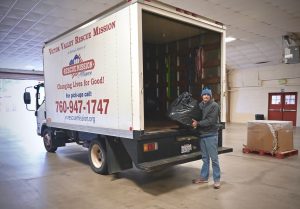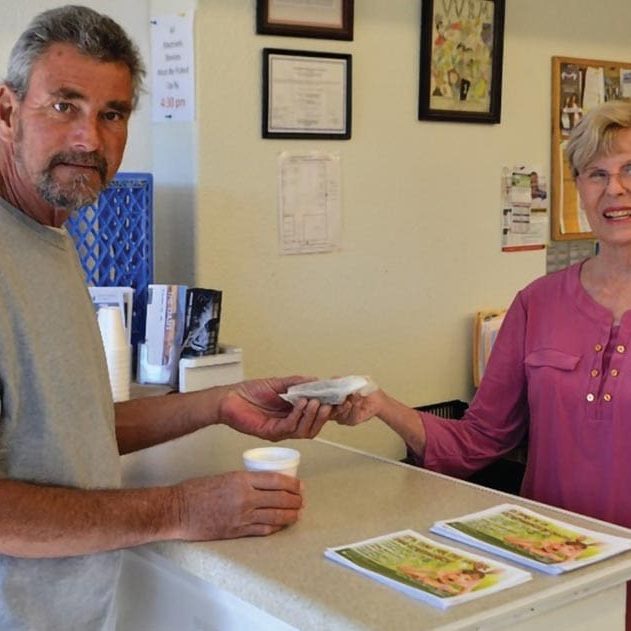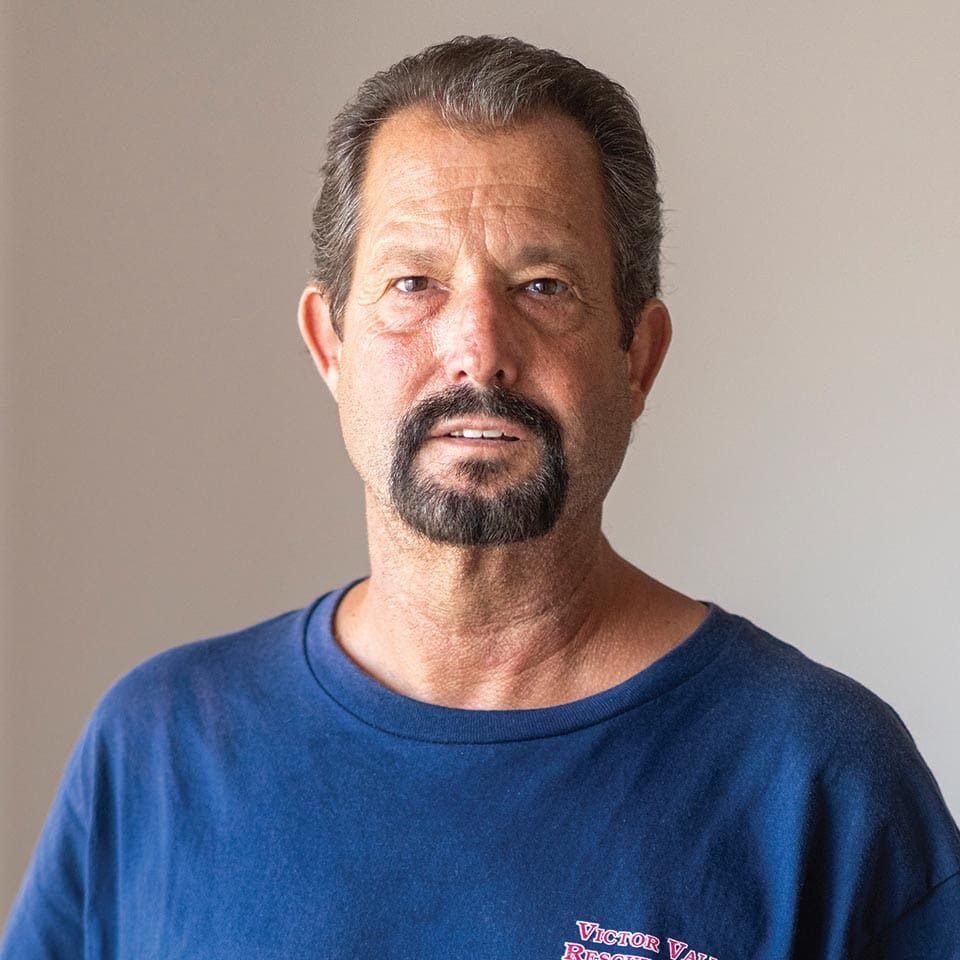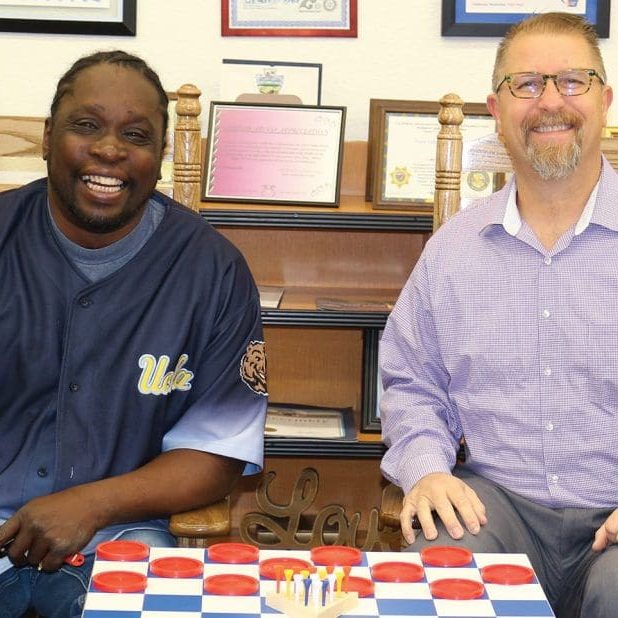Stories that Inspire.
Victories to Celebrate.
STEPHEN SHARES STORY TO HELP OTHERS IN NEED, INSPIRE SUPPORTERS

Stephen has experienced restoration with his family and healing from some of his mental issues.
When Stephen looks back at his childhood, growing up with his parents and three older brothers in Covina, there are a lot of foggy memories. Stephen had a heart attack in 2016 and it’s affected his memory.
“I died on the table (for a while),” he said. “So I don’t remember some things well. I know my parents were there for us—it’s not like I didn’t have parents or that I had a bad upbringing.”
Despite his supportive family, Stephen started fighting, drinking and doing drugs after high school. “The area I grew up in in Covina, in the 80s, there was a lot of cocaine and alcohol,” he said. “My friends and people around town—they all did it. There was so much partying.”
After high school, Stephen had gone straight to work painting cars and doing bodywork. “Being in that business, I started drinking even more,” he said. “Back in our time, everybody drank—they drank at work during the day some and then got together at 5 p.m. for more.
“Once I started doing it, I couldn’t stop. I was an alcoholic. I don’t drink anymore—I’ve been sober for a year and a half.”
Stephen got married in 1989 when he was 23, and the couple had two kids. “I had a normal family,” he said. “I worked all the time. Other than the drinking, that was the thing that really got to my wife after a while.”
After his heart attack in 2016, Stephen fell into a depression and was drinking heavily. “I started pushing away my wife and kids,” he said. “I was really down and out. I was bummed out and started not caring about anything. I basically didn’t have the will to live anymore. The depression really took me down and I really didn’t care if I died or not.”
Stephen moved into a trailer. “I was away from everybody,” he said. “I didn’t talk to anybody. I didn’t have any hope. I stayed in the trailer, did drugs, and drank.”
Two years ago, Stephen and his wife divorced. “We were married for 33 years and had a lot of good times,” he said. “But the drinking was too much. And then I lost the trailer. I had no place to go.”
Stephen got a referral to the Mission, and arrived Aug. 1. “When I first got here, I realized that I thought I knew God—I had gone to church with my wife and when I was young—but I didn’t,” he said. “I was just going through the motions. After the devotions and learning from Pastor John (Schmidt, program manager), I found that what I thought I knew of Jesus, I didn’t know at all.
“Now, I’ve learned to pray about things. Jesus touched my heart, showed me that He is real, and He does care and He loves me.”
When Stephen got to the Mission, he was on heavy medication for anxiety, depression, OCD and ADHD.
“Two weeks in, I had a revelation,” he said. “I prayed on it, and I’m not depressed anymore. I don’t have anxiety. I asked Jesus to take it away. I handed it all to him and he took that burden from me. When I got here, I needed all those meds to survive. I don’t take anything anymore.”
He’s also experienced restoration with his family. “I had pushed my kids away,” he said. “When I got here, I thought I’d never see my kids again. How I was, how I acted toward them ... they told me they hated me.”
Now, Stephen’s son comes to visit every weekend and the two go to races at Glen Helen Raceway. His daughter and her husband take Stephen to lunch. “My son said, ‘Dad, I can’t believe it. You have changed. You are different.’ I told him, ‘That’s not me, that’s Jesus Christ.’ He came into my life and showed me about love. He showed me that I’m forgiven for my sins. My past is my past. He died on the cross for me.”
Stephen said the program has changed his life. “I think that if I wouldn’t have come to this program centered on Jesus Christ, things would’ve been a lot different,” he said.
“I’m looking forward to the future,” he added. “I have a lot of health problems and there are more surgeries to come. But after, I want to volunteer. I want to help my son and my daughter when I have grandkids. I want to take care of them.”
Sharing his struggles is important to Stephen. “If my story helps one person, that’s worth it. Or if one donor sees how the program helped me, that it changed my life, and wants to help, that’s all that matters.
“If I wouldn’t have come here, I’d be on the streets. I was homeless for three days—it was pure hell. I checked myself into the hospital because I was thinking of suicide. I couldn’t stand it. Now, my whole life has changed.”
Be Inspired
Be Transformed
Stay connected with the good work the Mission is doing, and learn more about the people we help.



